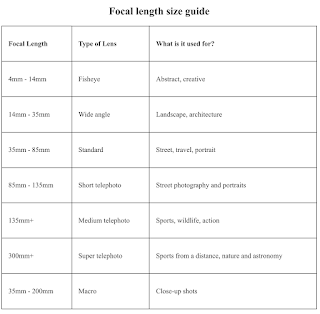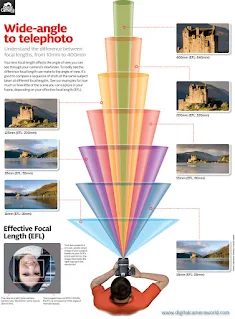Camera Lenses
Introduction
A camera lens is a tool that focuses light from a scene onto a camera sensor.
- There are 2 broad categories of camera lenses: Prime lens and zoom lens.
Prime Lens and Zoom Lens
A prime lens is a lens that has a fixed local length, meaning it cannot zoom in or out. If you want to adjust your framing of a scene, you have to either physically move or change to another lens with different focal length. However, it offers some advantages over zoom lenses, such as
- Wider maximum aperture (smaller f-number) that allows more light and creates a shallow depth of field.
- Smaller size and lighter weight.
- Lower cost.
Zoom lenses use a series of lenses to allow different focal lengths from a single lens, making them more flexible but not as fast.
- They contain more glass, which aids in their flexibility, but they also tend to be bigger and heavier than prime lenses.
Within both prime and zoom types of lenses, there are a variety of lenses, all with different focal lengths, suitable for different purposes and styles of photography, such as standard, wide-angle, telephoto, macro and fisheye lenses.
Standard Lens
A standard lens is a lens that has a focal length between 35 mm and 85 mm.
- It produces an image that roughly matches what the human eye sees, hence is suitable for different types of photography, such as portraits, landscapes and street photography.
Wide-Angle to Telephoto Lens
- Although wide-angle lenses bring in more of the scene, the images start to become distorted at the outside edges of the frame.
- Are ideal for photographing skyscapes, cityscapes and wide panoramic landscapes.
Telephoto lenses have longer focal lengths and are great for bringing distant scenes and subjects closer.
- Regrettably, the brightness of the image decreases as the focal length increases. Some higher-end telephoto lenses are equipped with a wider maximum aperture or iris opening to address the issue.
- Allows the photographer to zoom in on a subject from a distance, without actually moving closer, which is particularly useful for wildlife, sports events or concerts.


Comments
Post a Comment